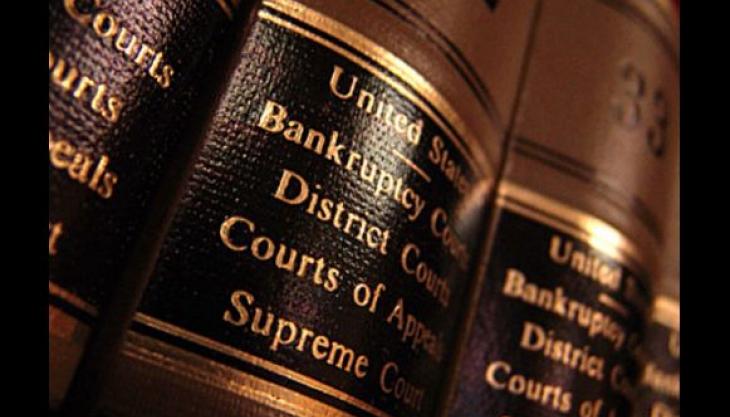5 North Carolina Bankruptcy Laws You Must Read!
Submitted by Rachel R on Thu, 08/22/2013 - 9:43pm

Image source: Fixr.com
While bankruptcy laws are established at the federal level and are part of the US Code - specifically Title 11 – there are state rules and guidelines specific to where you live that will factor into your eligibility and ultimately to how much of your debt is relieved. Some of the most important things to know are the aspects of North Carolina bankruptcy law that will impact how your assets are treated in your bankruptcy filing. Here are five NC bankruptcy laws you must know:
#1 Protected Equity in Your Home
I often hear that protecting the home is most bankruptcy filer’s major concern. If you own a home and are trying to protect it during your bankruptcy filing – whether you are in Chapter 7 or Chapter 13 – here are the laws I am most often asked about related to homestead exemption. For individual filers in North Carolina, you can have up to $35,000 in equity in your home before it triggers the scrutiny of your bankruptcy Trustee.
If you are married and are filing together, you can have up to $70,000. Equity is the difference between the value of your home and what you owe on it (in a mortgage or other debt). Also important to know that I see as a common point of confusion for filers is that if you jointly own your home but only one of you is filing bankruptcy, your homestead is exempt from the bankruptcy filing and individually owned debts of the filer.
#2 Protected Equity in Your Vehicle
If you own a car and don’t want it seized or turned over in a bankruptcy filing – whether in Chapter 7 or 13 – I recommend you familiarize yourself with the NC laws related to vehicle exemption. The state laws limit you to a $3,500 exemption in a single vehicle. If you owe a loan on your vehicle, the equity is the difference between the value of the vehicle and the loan on the vehicle.
What I often see is that people are “upside down” on their car notes and owe more than the car is worth so it doesn’t ever come to the exemption limit. If you have a high dollar vehicle that you owe free and clear, the Trustee may be interested in selling off the asset to deal with your debts. I also recommend you try to get your car loan modified as part of your bankruptcy if you owe more than the car is worth – check this blog for more info!
Image source: ConstructionLawNC.com
#3 Protected Equity in Your Personal Property
After the home and vehicle the next concern I hear most often is about personal property. If you’re considering filing bankruptcy in North Carolina you may worry that your home is going to be cleared out and the contents sold off to cover your debts. If you’re stressed about this, I encourage you to read the NC laws on personal property exemptions.
I have never seen this happen and unless you’re sitting on a pile of Picassos and a drawer full of diamonds you should be okay. As an individual filer you get $5,500 plus another $1,000 for each of your dependents up to $4,000 maximum additional. So if you’re filing and have a spouse and three children, you can protect $9,500 in books, clothing, appliances, musical instruments, household goods and furnishings.
#4 Wild Card Exemption That Covers All Property
This may sound like something that comes into play for a game of Uno, but in fact it’s something most states – North Carolina included – offer to give an additional buffer around your property. I suggest you read up on NC’s wild card provisions and then ask your bankruptcy attorney if you have any other questions. You can tap into $5,000 of additional wild card equity protection on any type of property and another $500 on any personal property.
Image source: LawOfficesInFL.com
#5 Exemptions That Protect Your Finances and Investments
Another class of asset I am often asked about in bankruptcy filing includes benefits, retirement accounts and other investment and income type assets. In North Carolina, unemployment compensation is exempt from consideration in bankruptcy as are workers’ compensation, compensation to victims of crimes, tools of your trade (up to $2,000), college savings accounts (up to $25,000), personal injury and wrongful death damages, IRAs, Roth IRAs, public pension such as those for teachers, government workers, firefighters and police, alimony, child support and certain surviving spouse and life insurance benefits. If you have assets like these, I recommend you talk to a reputable North Carolina bankruptcy attorney like John T Orcutt to answer all your questions about exemptions in bankruptcy!
Contact us now for a free consultation to discuss your debt situation, assets and how we can help you protect your assets while getting you the best debt relief possible for your circumstance.
Debts Hurt! Got debt? Need help? Get started below!
Serving All of North Carolina
- Bankruptcy Attorneys Raleigh NC (North)
- Bankruptcy Attorney Fayetteville NC
- Bankruptcy Attorney Durham NC
- Bankruptcy Attorneys Wilson NC
- Bankruptcy Attorneys Greensboro NC
- Bankruptcy Attorneys Southport NC
- Bankruptcy Attorneys Wilmington NC
Bankruptcy Attorneys Raleigh NC (North)
6616 Six Forks Rd #203 Raleigh, NC 27615 North Carolina
Tel: (919) 847-9750

Bankruptcy Attorney Fayetteville NC
2711 Breezewood Ave Fayetteville, NC 28303 North Carolina
Tel: (910) 323-2972

Bankruptcy Attorney Durham NC
1738 Hillandale Rd Suite D Durham, NC 27705 North Carolina
Tel: (919) 286-1695


Bankruptcy Attorneys Greensboro NC
2100 W Cornwallis Dr. STE O Greensboro, NC 27408 North Carolina
Tel: (336) 542-5993

Bankruptcy Attorneys Southport NC
116 N Howe St. Suite A Southport, NC 28461 North Carolina
Tel: (910) 218-8682

Bankruptcy Attorneys Wilmington NC
116 N. Howe Street, Suite A Southport, NC 28461 North Carolina
Tel: (910) 447-2987
